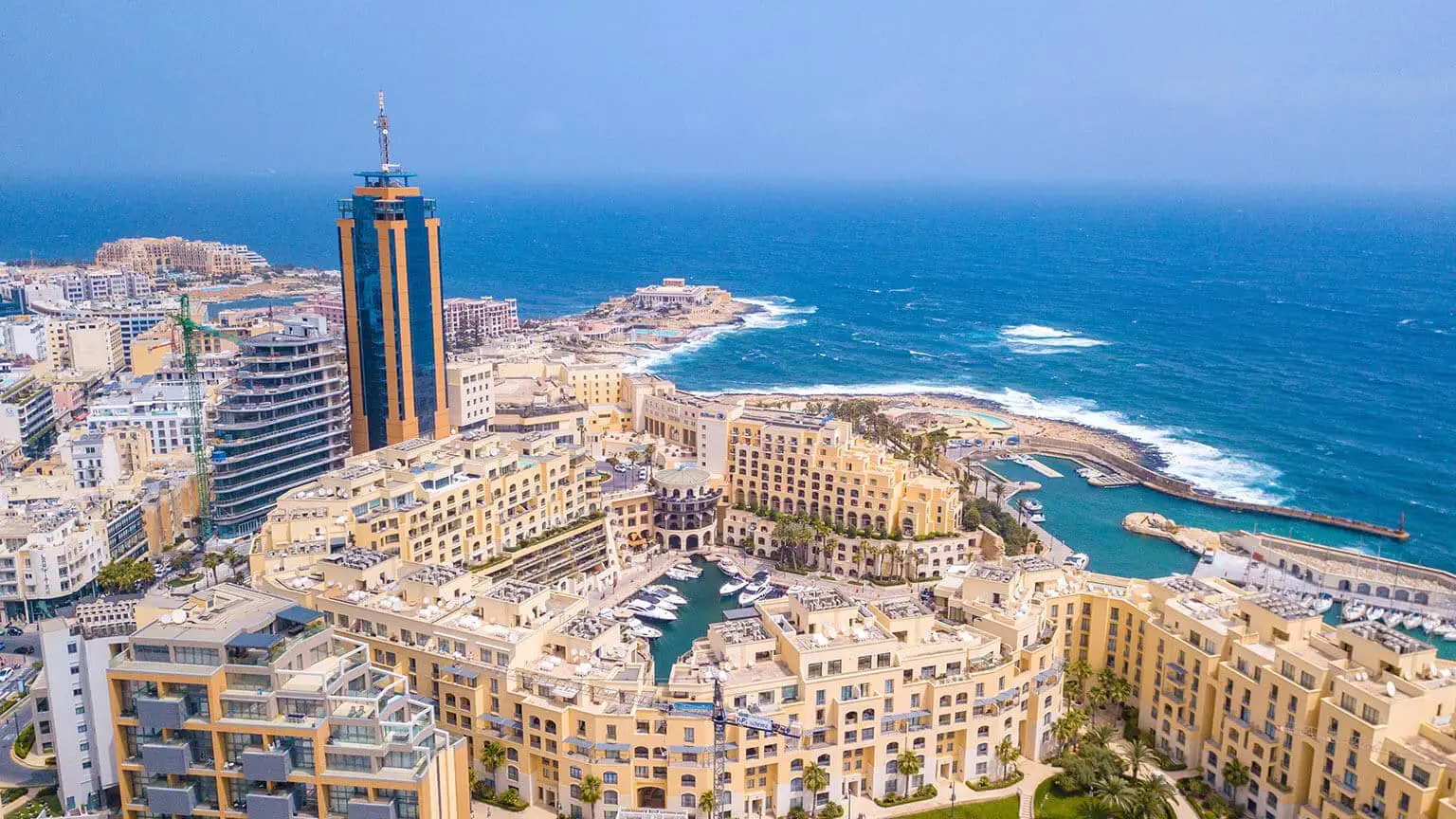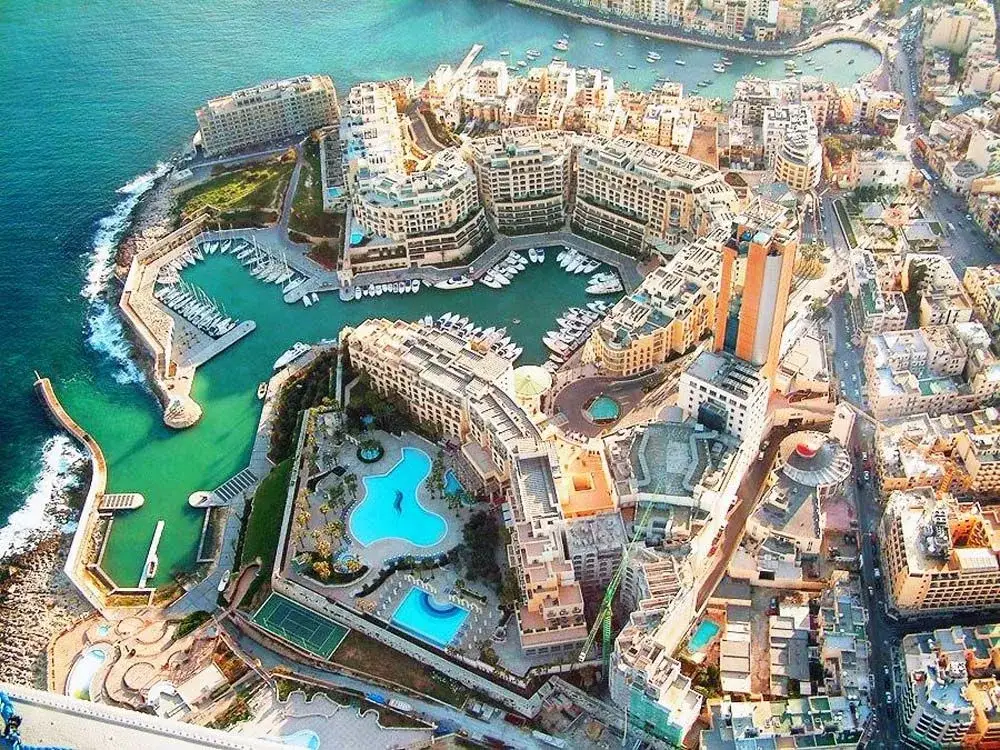Demand for Malta is steadily growing, mainly due to the favorable political and economic situation, clear legislation, and low crime rate. The question of why to buy real estate abroad here receives a clear answer: for long-term stability, personal and financial security, as well as systematic capital growth.
Thanks to the mild Mediterranean climate, quality infrastructure, and high living standards, Malta is becoming not only a tourist destination but also an investment center in Europe. Buying real estate abroad in this region is a way to not only preserve assets but also effectively multiply them.

Political Neutrality, Tax Benefits, and Capital Protection
Stable democracy and a transparent regulatory system in Malta create conditions for free movement of capital. Unlike jurisdictions where political and economic crises escalate, Malta maintains a course of neutrality and investment openness.
The tax system is particularly attractive for those considering citizenship for investment in real estate or long-term rental properties for passive income. The absence of tax, favorable conditions for resale, and the opportunity to obtain a residence permit for property investments make the market especially promising for private and corporate investors.
Geographical and Climatic Factors as an Investment Advantage
The island location in the center of the Mediterranean Sea provides Malta with a mild climate, clean air, and convenient transportation accessibility. Unlike mainland countries, property here is not subject to sharp price fluctuations due to infrastructure risks or external threats.
One of the reasons to buy real estate abroad becomes the stability against seasonal collapses, migration disturbances, and environmental threats. Moreover, Malta actively develops green projects and sustainable construction standards, influencing the long-term profitability of investments.
Where to Find Prospects: Where to Invest in Real Estate Abroad in 2025?
Against the backdrop of geopolitical instability in other parts of Europe and volatility in financial markets, including stocks, Malta demonstrates a stable economy focused on attracting foreign capital. When choosing where to invest, more and more investors are paying attention to the following categories of properties:
- apartments with sea views for short-term and long-term rentals;
- premium segment villas in the suburbs of Valletta;
- properties related to education – near campuses of international universities;
- commercial real estate in tourist and business areas.
Thus, property purchase becomes not a spontaneous decision but a tool for financial diversification and asset protection.
Advantages of Buying: Why Buy Real Estate Abroad in Malta
The Maltese market remains one of the few where low corruption levels, legal transparency, and high rental demand are combined. That’s why the answer to the question of why buy real estate abroad becomes practically significant when considering Malta as an investment destination. The following factors support such a choice:
- the opportunity to generate profitable income from short-term and seasonal rentals;
- favorable conditions for obtaining residence permits;
- developed tourist flow contributing to high property occupancy;
- stable profitability upon resale.
These factors make buying in Malta a calculated step in the strategy of forming long-term assets, rather than an emotional decision.
Potential for Short-Term and Long-Term Rentals
Thanks to a fixed tax rate and no double taxation with several EU countries, advantageous real estate investments in Malta ensure a stable inflow of funds.
In conditions of inflation and sanctions pressure, many investors question why buy real estate abroad and find in this step a stable and secure way to preserve capital – as an effective alternative to investing in business, finance, or stocks.
Preferred Types of Properties: What Investors Choose?
Before deciding to invest capital in Maltese property, investors analyze a set of criteria. The main ones include:
- legal transparency of the transaction;
- market value and resale prospects;
- demand for rental;
- location of the property and its transportation accessibility.
More property owners prefer buying commercial real estate oriented towards offices, hotels, restaurants, and coworking spaces. This is explained by the increasing number of expatriates and growing business traffic in the region.
List of Reasons for Investing
There are several solid reasons why Malta remains popular among international investors. The most significant ones are:

- political and legal stability;
- simple tax system;
- favorable conditions for citizenship acquisition;
- constant rental demand from tourists, students, and entrepreneurs;
- EU member country status with high living standards.
Each of these factors strengthens the argument for why to buy real estate abroad specifically in this region.
Conclusion
The answer to why buy real estate abroad in the context of Malta is a combination of stability, profitability, and comfort. The calm climate, transparent legislation, capital protection, tax benefits, and stable rental market make the country one of the most predictable and advantageous jurisdictions for investments in 2025!
 en
en  de
de  ar
ar  es
es  hi
hi  fr
fr  nl
nl  it
it  pt
pt  el
el 









